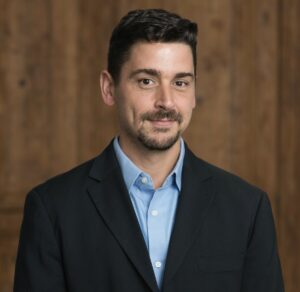Columbia University and Taiwan AI Labs sign MOU to accelerate AI application for sustainable development
台灣AI聯盟國際發光 杜奕瑾領Taiwan AI Labs與哥大簽署MOU 加速國際AI永續發展

January 4th, 2020,Taipei, Taiwan – Responding to the UN’s “2030 Sustainable Development Goals,” Taiwan AI Labs and the Center for Sustainable Development (CSD) at Columbia University signed a Memorandum of Understanding (MOU) focusing on key collaborations in artificial intelligence (AI) and data governance. The move aims at enhancing academic cooperation and developing human-centered AI solutions to achieve the global sustainable development goals.
Yanis Ben Amor ,Executive Director of the Center for Sustainable Development (CSD) at Columbia University, has over 20 years of research experience in infectious diseases, mainly tuberculosis, HIV and now COVID-19. Dr. Ben Amor has created several Digital Health tools, particularly for tuberculosis patients to facilitate their adherence, for HIV positive mothers to help them prevent vertical transmission of the virus, for malaria control programs to monitor use of resources for an effective control strategy, and more recently, for Syrian refugees in Turkey, Lebanon and Jordan to provide health information and healthcare access. He has shown great importance in promoting sustainable development policies and solutions worldwide.
In the post-pandemic era, international societies build social resilience through AI-powered solutions for frontline disease detection, medical treatment, finance, tourism, and other daily life scenarios. The resilience of the global industries, on the other hand, is catching up to meet the “Sustainable Development Goals (SDGs)”’ by 2030. Cross-domain alliance has become a crucial part of the plan to foster technical innovations and to enhance global collaborations.
To bring Taiwan’s AI momentum to the world, Ethan Tu, the founder of Taiwan AI Labs, led the team to sign an MOU with the Center for Sustainable Development of Columbia University. The two parties will focus on developing AI solutions by leveraging Taiwan’s unique strengths, including 1) a streamlined COVID testing process for the hospitals and the airports; 2) cybersecurity and epistemic safety at misinformation understanding; 3) data governance and blockchain studies at Taiwan Federated Learning Alliance (TAIFA).
“Resilience is the new metric to follow in the post-COVID time. In Taiwan, it comes along with three major trends: zero-contact, net-zero emissions, and trustworthy algorithms at zero-trust cyberspace,” said Ethan Tu, founder of Taiwan AI Labs. The technologies are developed with AI-powered advanced networks, new energy, metaverse, precision healthcare, and digital literacy. We look forward to working with CSD and expanding international cooperation in the field of AI.”
In 2015, the United Nations announced the “2030 Sustainable Development Goals,” which cover issues like human equality and climate change, committing to lead and build a sustainable environment. The MOU signing highlights Taiwan’s strength in developing AI-powered solutions to tackle and support a wide range of problems.
Happy to collaborate with Taiwan AI Labs, Dr. Yanis Ben Amor responded: “the design and development of innovative solutions for addressing the challenges of sustainable development is part of the Center’s DNA. The addition of all the potential that Artificial Intelligence can bring will allow us to imagine exciting new tools and solutions to accelerate progress and help us reach the Goals by 2030. Taiwan AI Labs will be a formidable partner in this journey!”
“It’s been our pleasure to work with CSD and promote the SDGs with Taiwan’s AI soft power,” said Jason Hsu, Chief Initiative Office of the Taiwan AI Labs. “Moving forward, we use AI and machine learning technologies to create a smarter, more accurate COVID screening system. Together, we will grow into a bigger and stronger alliance and develop an AI sustainable applications blueprint.
2022年 1月 20日,Taipei, Taiwan –呼籲聯合國(UN)「2030永續發展目標」,
哥大永續發展中心執行長Jeffere Sachs是聯合國永續發展項目高級顧問,
輸出台技術人才能量 AI外交建構社會韌性
後疫情時代,國際加速導入AI建設社會韌性,
為鏈結台灣AI動能與世界接軌,Taiwan AI Labs創辦人杜奕瑾領軍團隊,
台灣人工智慧實驗室創辦人杜奕瑾指出:「
開創國際盟友合作 打造永續發展體質
聯合國於2015年宣布了「2030永續發展目標」,
Jefferey D Sachs是世界著名經濟學家,曾於聯合國擔任千禧年發展計畫(
樂見與Taiwan AI Labs建立合作關係,哥倫比亞大學永續發展中心執行主任Yan
台灣人工智慧實驗室倡議長許毓仁則表示:「Taiwan AI Labs 很高興能與哥倫比亞大學永續發展中心合作,
l台灣人工智慧實驗室網址:https://www.ailabs.tw/
l臉書追蹤我們:https://www.facebook.com/TaiwanAILabs
lTaiwan AI Labs新聞聯絡請洽:pr@ailabs.tw


